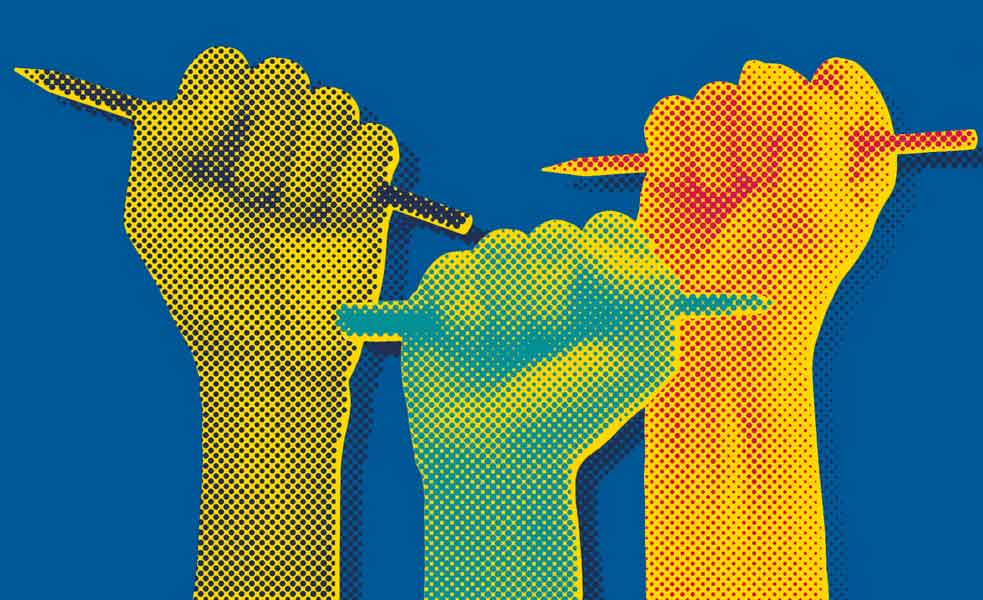
Published :
Updated :

Speakers at a dialogue in the capital on Wednesday said freedom of the country's media is now being compromised in various ways.
A new kind of pressure has emerged - figuring out who belongs to whom, who needs to be removed, who needs to be included, etc. This kind of pressure is damaging the media.
They emphasised ensuring proper freedom of media to ensure journalists' welfare.
They made the observations at the dialogue titled "Media Freedom: Exploring Grievances and Self-regulations". Centre for Governance Studies (CGS) organised it at the Centre on Integrated Rural Development for Asia and the Pacific (CIRDAP) Auditorium.
Professor Dr. Ali Riaz, Head of the Constitution Reform Commission and Vice-Chairman of the National Consensus Commission, was the guest of honour at the event.
He said, "Sometimes I tell journalists: stand in front of a mirror and ask yourself, are you a journalist or a politician? One year ago, during the July movement, the then Prime Minister held a meeting with journalists. You know what each of them said during the meeting! Is that journalism? Should we defend that?"
CGS President Zillur Rahman, who moderated the discussion, focused on self-regulation by journalists and resolution of complaints.
He said the government has formed a committee to ensure autonomy of Bangladesh Betar and Television. A new committee for the Press Council has also been announced, along with several other committees.
"However, in reality, these committees have not been able to accomplish anything effective. The Chief Adviser has given direct instructions on media reform. But what we have seen in practice is that not much has happened," he maintained.
Matiur Rahman Chowdhury, Editor-in-Chief of Manab Jamin, said, "We had high expectations from Professor Yunus in relation to his government. But, what have we seen? The work he could have done, he is not doing that."
"There was no need to take twelve or eighteen months. The recommen-dations being presented for media reform - if these are the ones we rely on - these will never be implemented. Not in the next ten years, not even in the next hundred years," he opined.
Gono Forum President Subrata Chowdhury said journalists working in various media houses do not receive proper salaries and benefits.
"So how can we expect quality journalism or feel proud of those who represent the media? To me, the independence of the judiciary and the media now seems like an impossible paradox," he added.
Professor S. M. Shameem Reza of Department of Mass Communication and Journalism, Dhaka University, said, "Does self-regulation mean that the journalists will not receive any other legal protections? Will the injustices they face, the pressures they endure, not be addressed? Are we simply going to rely on self-regulation alone? It must not be like that."
Rezwanul Haque Raja, Editor-in-Chief of Maasranga Television, said, after the Media Reform Commission submitted its report, it head Kamal Ahmed presented a 15-point summary, which could have been implemented immediately.
"One of the key proposals was to establish a Press Commission. Unfortunately, it was ignored, and instead, the Press Council was restructured," he also said.
Reaz Ahmad, Executive Editor of Dhaka Tribune, said the Press Council has unfortunately become almost a non-existent institution. Had it not been so, the incidents like arrest of ordinary people under the ICT Act, the Digital Security Act, and the Cyber Security Act would not have occurred.
Asif Bin Ali, a PhD Candidate of Georgia State University, US, said, "In terms of media control, we see that the political parties are operating from a political economy standpoint. They do not consider who is in power or who is outside it."
Mahbub Morshed, Chief Editor and Managing Director of Bangladesh Sangbad Sangstha (BSS), said, "How has the Wage Board got excluded from the agenda of Media Reform Commission? I believe one of the biggest scams of the Commission is its complete disregard for journalists' rights, legal protection, job security, and financial security. Its report was crafted to serve corporate interests and agenda of a particular group."
Mahmuda Habiba, member, BNP Media Cell; Kazi Jesin, freelance journalist; Manjurul Islam, Executive Editor of Bangladesh Pratidin; and Shihab Uddin Khan, an advocate of Supreme Court; were present among others.
talhabinhabib@yahoo.com


 For all latest news, follow The Financial Express Google News channel.
For all latest news, follow The Financial Express Google News channel.